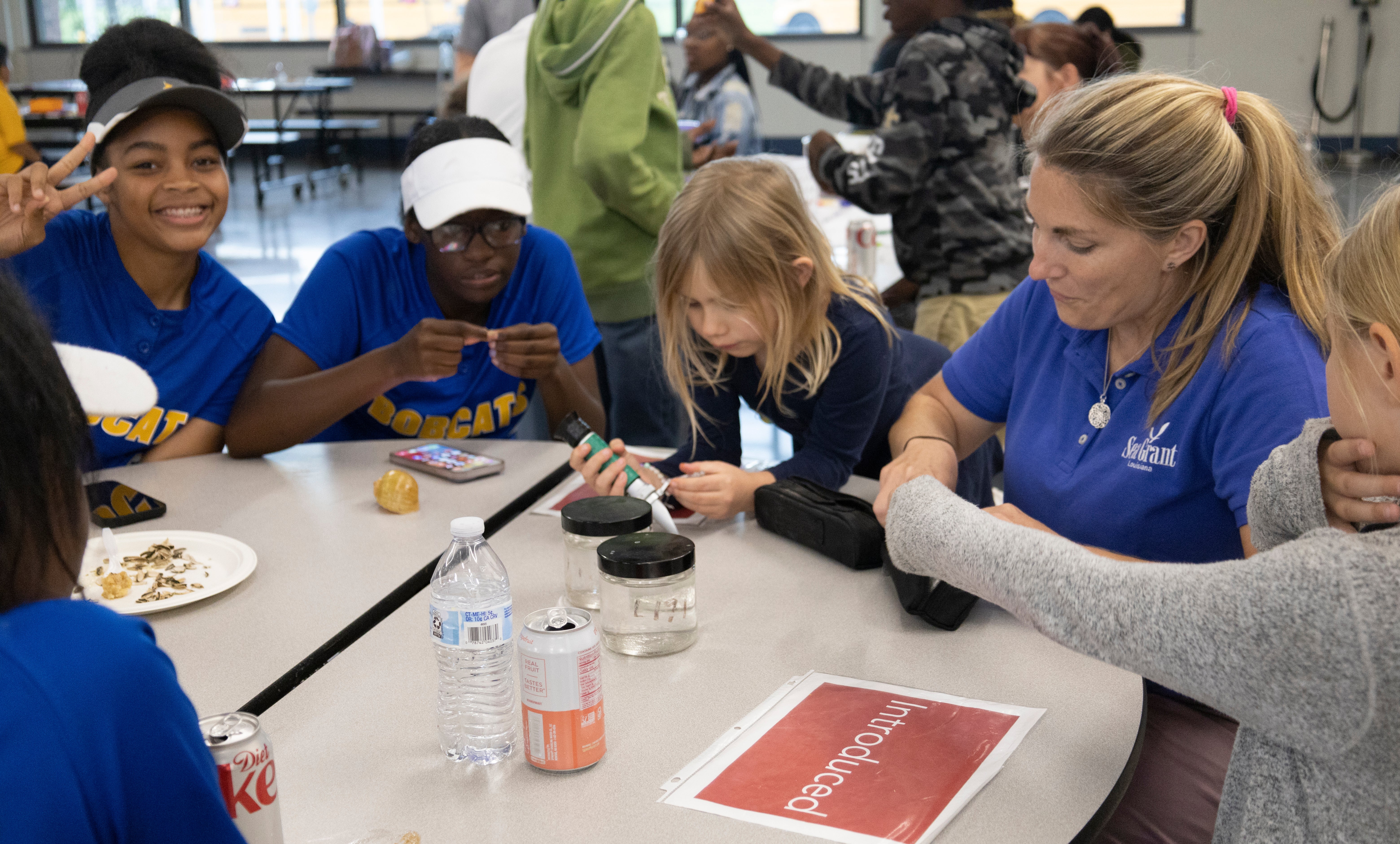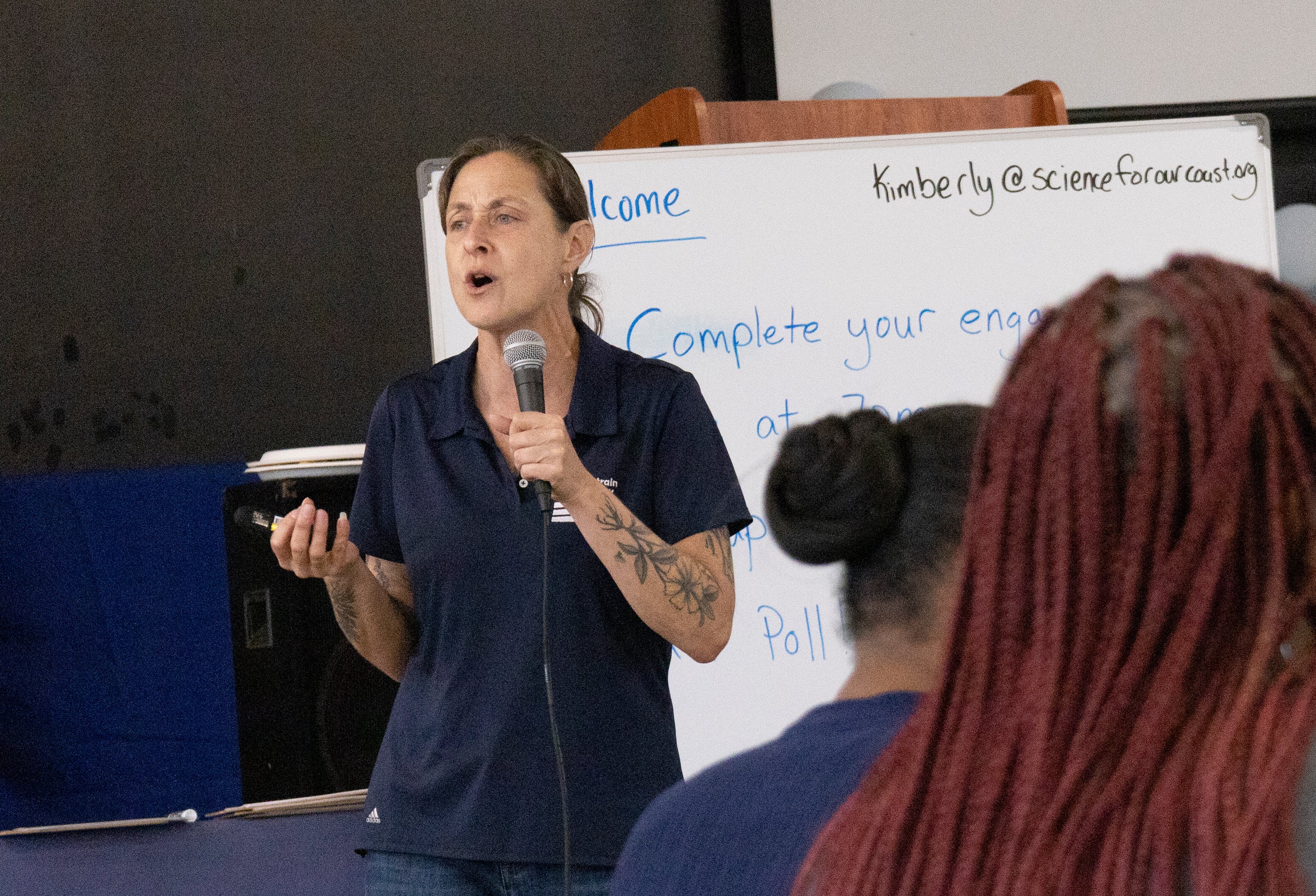Community invited to monitor health of local waterways
Published 3:59 pm Sunday, May 14, 2023
|
Getting your Trinity Audio player ready...
|
RESERVE — Equipped with a grant from Marathon, Pontchartrain Conservancy will soon work alongside community organizations to monitor the health of waterways within the community.
The program, called Communities Investigating Their Environment or CITE for short, invites boy and girl scouts, STEM groups, local libraries, environmentalists and other organizations to complete trainings on best practices for water quality testing.
A meeting was held at East St. John Preparatory Academy on May 10 to spark discussion about local waterways.
Pontchartrain Conservancy representative Kimberly Cooke said CITE will be driven by participants, drawing on local knowledge and priorities.
“The community decides what’s important,” Cooke said. “We are trying to move beyond informing you to including you.”
St. John the Baptist Parish was selected for water quality monitoring based on its abundance of waterways, from the Mississippi River and Blind River to lakes Pontchartrain and Maurepas to the bayous, canals and wetlands that crisscross the landscape.
According to Cooke, St. John Parish ranks high on impaired waterway indicators provided by the EPA, as well as social vulnerability factors including poverty levels and racial demographics.
The community can get involved with CITE through sharing priorities and insights at community listening sessions, joining an advisory team, or becoming a steward.
Stewards will complete environmental science training to learn how to monitor water quality and design action projects driven by data. Testing sites will be chosen by the community, while advisors, Pontchartrain Conservancy staff and water quality scientists will provide guidance throughout the duration of the project.
According to Cooke, the CITE project is funded for one year but is designed to be self-sustainable to continue past that point.
During Wednesday’s informational meeting, attendees participated in real-time surveys to share concerns and indicate how they utilize St. John Parish waterways, from fishing and boating to admiring the scenery.
While surface water is the focus of the project, experts with the Pontchartrain Conservancy said drinking water can be impacted by surface water quality. The Mississippi River and Ruddock aquifer are used as sources for St. John Parish water districts, which are being upgraded parishwide.
Destiny Dunn was drawn to the meeting to learn more about how the water quality in St. John Parish affects her two young children. The meeting also drew participation from environmentalists, including Mary Hampton and Lydia Gerard of the Concerned Citizens of St. John, who questioned how run-off from industries impacts the health of waterways and people within the community.
Pontchartrain Conservancy has also partnered with St. John the Baptist Parish Schools for a FLOW St. John activity that engages eighth grade teachers and students in learning about local watershed.
According to school district representative Michelle Seymour, Pontchartrain Conservancy and NOAA are providing resources, lessons and STEM kits for every eighth grader through a two-year grant.
“It’s relevant to our area, and we’re excited to partner with them,” Seymour said. “This year, our teachers are being trained to bring the lessons to our students.”
Teachers have tested for micro plastics in water using different filtration systems, built models to represent watersheds, and taken boat excursions to Manchac to learn about invasive species.
“We’ve taken some classes where we are learning about different careers in the science industry. We want to expose our kids to the different opportunities that are there even in the local area,” Seymour said.







